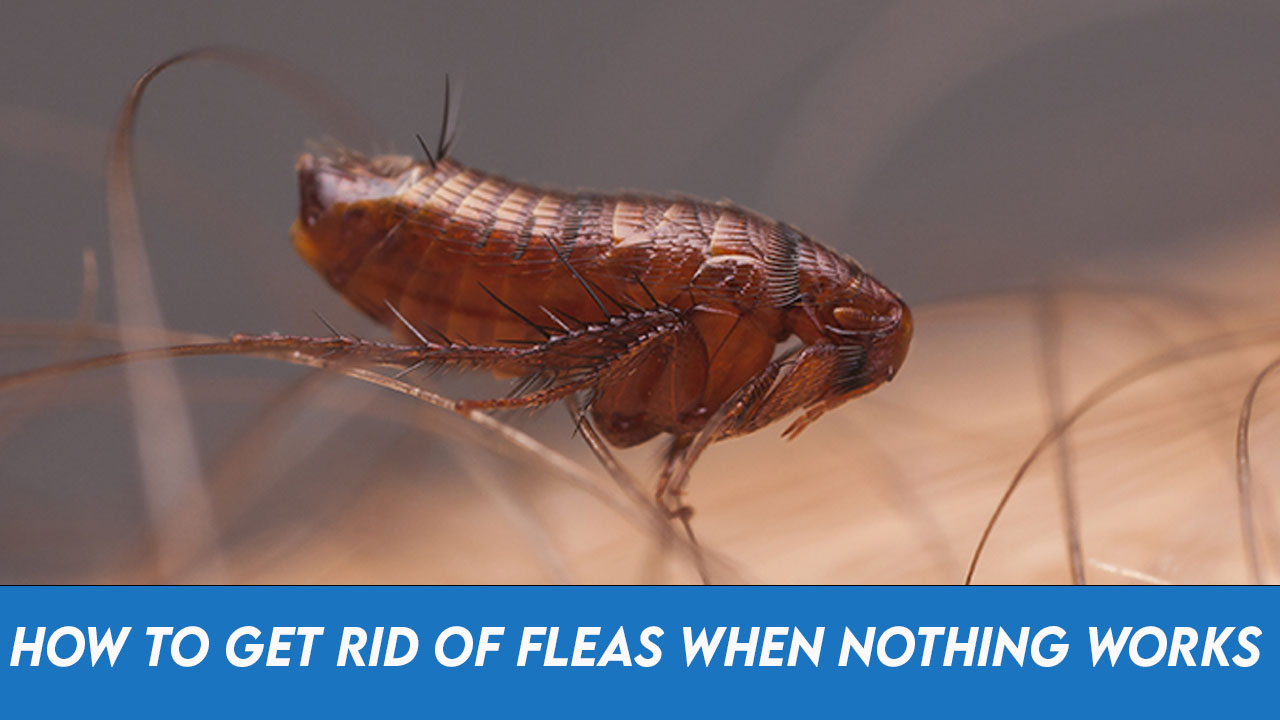Dealing with persistent fleas can turn any pet owner into a detective on a mission. If you’ve tried every remedy under the sun and those pesky pests just won’t budge, don’t throw in the towel just yet! In this article, we’ll embark on a journey to unveil effective strategies to tackle fleas head-on when it seems like nothing else is working. Buckle up, because we’re about to unravel the mystery of banishing fleas once and for all.
The Flea Conundrum: Unveiling the Challenge
Before diving into solutions, let’s explore why fleas can be so stubborn. Fleas have developed resistance to many traditional treatments, leaving pet owners baffled. Their rapid reproduction cycle and ability to hide in various nooks and crannies make them a formidable foe.
Revisit Your Flea Control Routine
Evaluate your current flea control routine and determine if there are any gaps. Are you treating both your pet and their environment? Consistency is key, so ensure you’re following the recommended guidelines for treatment frequency.
Prescription Medications
When over-the-counter remedies fail, consult your veterinarian for prescription-strength flea treatments. These specialized medications are designed to target even the most resilient fleas and break their life cycle.
Professional Pest Control Services
Sometimes, the situation calls for reinforcements. Hiring professional pest control services that specialize in tackling persistent flea infestations can provide you with the expertise and tools needed to combat the issue effectively.
Comprehensive Home Cleaning
Don’t underestimate the power of a thorough home cleaning. Wash your pet’s bedding, vacuum your entire house (including furniture), and steam clean carpets to eliminate fleas and their eggs hiding in these areas.
Natural Alternatives: Diatomaceous Earth
Diatomaceous earth is a natural flea killer that works by dehydrating fleas upon contact. Apply a light layer in areas where fleas are most prevalent, such as carpets and pet resting spots. Be cautious and choose food-grade diatomaceous earth to ensure your pet’s safety.
Target Flea-Prone Areas
Focus your efforts on areas where fleas thrive, such as shaded outdoor spaces, moist areas, and spots your pet frequents. This strategic approach can help you regain the upper hand in the battle against fleas.
Rotate Flea Control Products
Fleas can develop resistance to specific products over time. By rotating between different types of flea treatments, you can prevent them from adapting and increase the chances of effectiveness.
Consult a Pest Expert
If you’re at your wits’ end, consult with an entomologist or pest control expert who specializes in fleas. Their expertise can provide you with tailored advice and solutions to finally break the cycle.
Patience and Persistence
Above all, remember that conquering a stubborn flea infestation requires patience and persistence. Fleas might be relentless, but your determination can outshine their stubbornness.
Conclusion:
Facing fleas that seem invincible can be incredibly frustrating, but you’re not alone in this battle. By revisiting your approach, considering professional help, and exploring alternative methods, you can turn the tide and bid farewell to those relentless pests. Remember, while fleas might put up a fight, your determination and resourcefulness will ultimately lead you to victory over these persistent nuisances.
FAQ:
Q: What to Do When Fleas Won’t Go Away?
A: When fleas refuse to leave despite your best efforts, it’s time to reevaluate your approach. Consider seeking professional pest control assistance, using prescription-strength treatments, and implementing thorough cleaning routines to break the flea life cycle and regain control.
Q: Why Won’t Fleas Go Away No Matter What I Do?
A: Fleas can be resilient due to their rapid reproductive cycle and resistance to some treatments. Employ a multi-pronged strategy, including treating pets, cleaning your home, and exploring alternative solutions to ensure these pests finally bid adieu.
Q: Why Is Nothing Getting Rid of Fleas?
A: Flea resistance, improper application of treatments, or missing critical areas can contribute to treatment failure. It’s important to consistently treat pets and their surroundings, rotate products, and seek professional advice if your efforts seem futile.
Q: How Long Does It Take to Completely Get Rid of Fleas?
A: Achieving complete flea elimination can take several weeks. Flea eggs and pupae can persist for some time, so consistent treatments, thorough cleaning, and patience are essential for breaking the cycle.
Q: Will Fleas Eventually Go Away?
A: Without intervention, fleas won’t disappear on their own. Persistent treatment, cleaning, and preventive measures are necessary to eliminate fleas and prevent reinfestation.
Q: Will Fleas Eventually Leave?
A: Fleas won’t leave voluntarily. You must actively address the infestation by using effective treatments, maintaining cleanliness, and employing preventative measures to ensure they don’t return.
Q: What Month Do Fleas Go Away?
A: Fleas can thrive year-round in warm indoor environments. While flea activity may decrease in colder months, they can still infest homes during any season.
Q: Do Fleas Go Away in the Winter?
A: Fleas can survive in warm indoor spaces during winter. Maintaining vigilance with flea control is important to prevent infestations despite the colder weather.
Q: How Long Can Fleas Last in a House?
A: Fleas can survive for several weeks to months in your home without a host. Their life cycle includes eggs, larvae, pupae, and adults, making it crucial to treat all stages to eliminate them completely.

